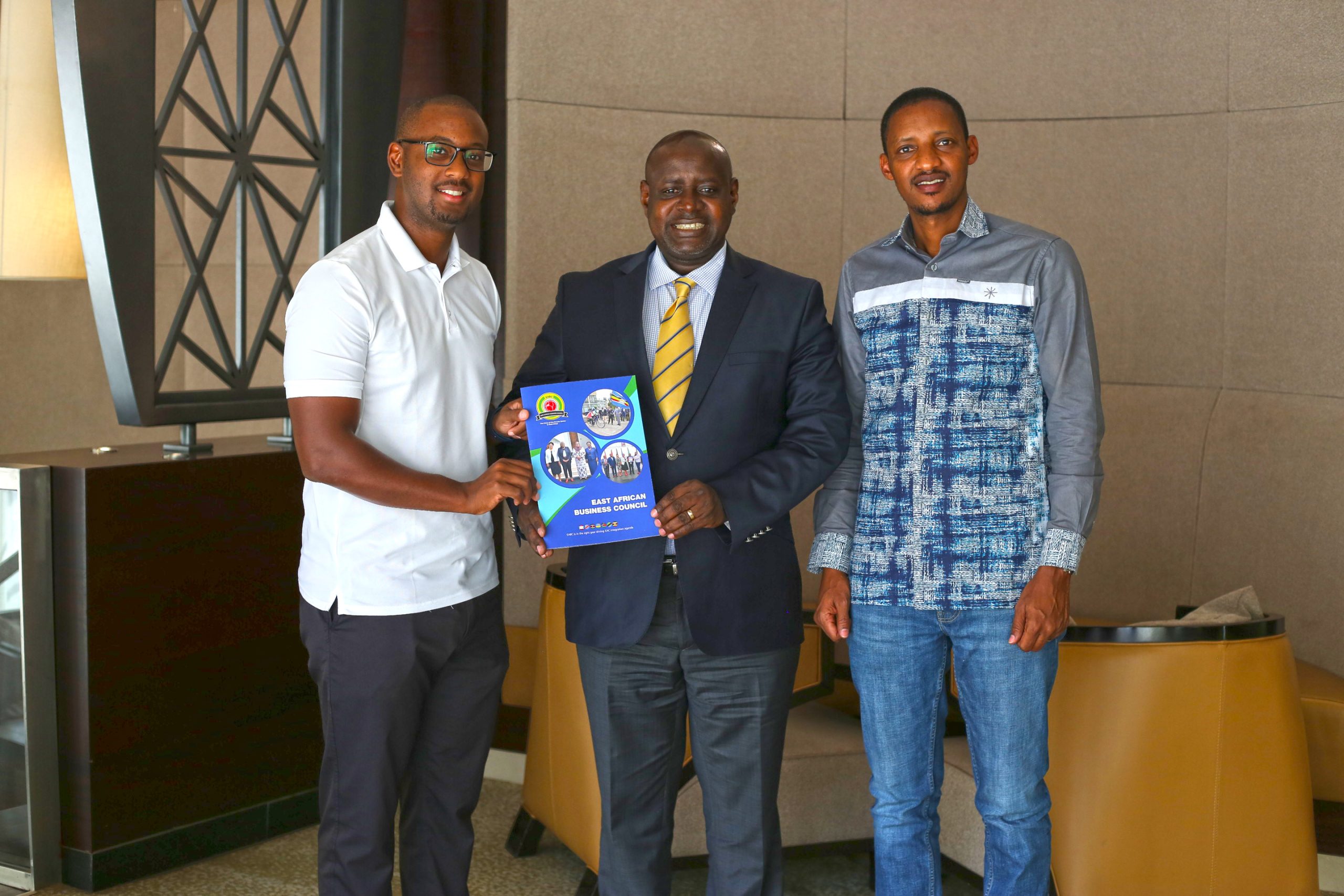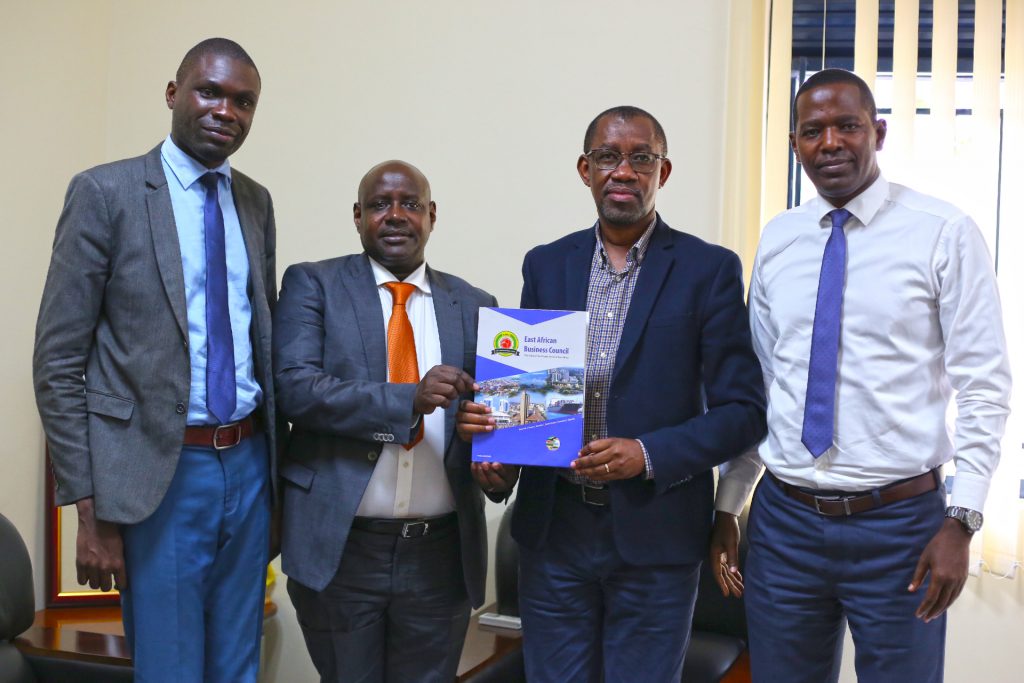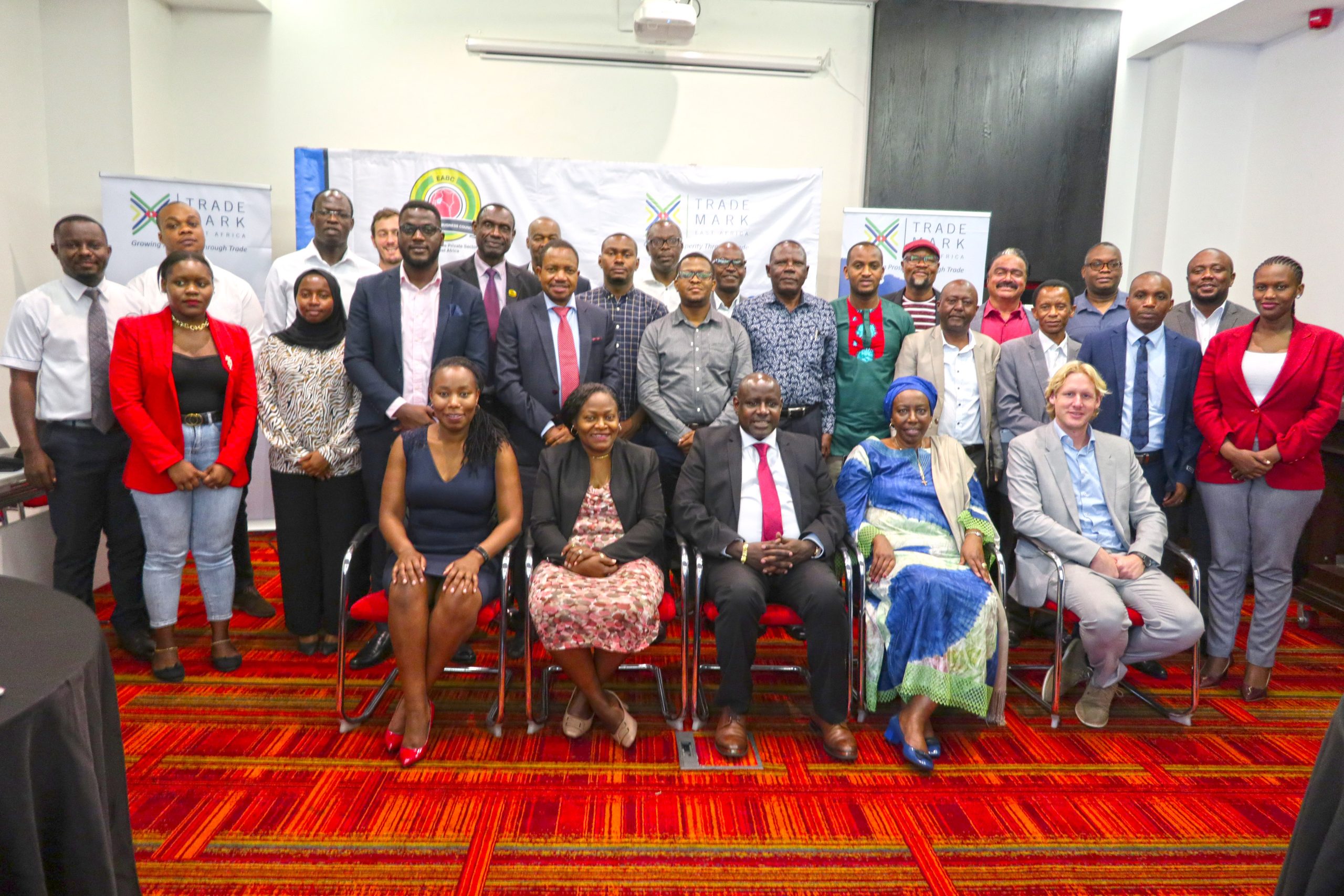On policy advocacy front, the EABC Secretariat developed and presented EABC Policy Advocacy Agenda 2021/22 to EAC Council of Ministers and articulated private sector policy priorities to the EAC Sectoral Council on Trade, Industry, Finance and Investment (SCTIFI) held on 24th to 28th May 2021. EABC Secretariat also developed and submitted policy briefs to EAC Director General Customs and Trade and Trade Facilitation Institutions. These include Open Skies, EAC Common External Tariff, Admission of DRC into the EAC bloc, Excise duties, Breast Milk Substitute General regulations-2020, COMESA-SADC preferential treatment, EAC-UK negotiations, Double taxation, Standards and Technical Regulations.
COVID-19 pandemic has disrupted global supply chains and business operations, the EABC Secretariat in partnership with African Economic Consortium (AERC) and Bill and Melinda Gates Foundation, conducted 3 studies and rolled out Webinar on Trade & Investment Recovery amidst COVID-19 and the Impact of COVID-19 on Agriculture, Light Manufacturing, Tourism & Hospitality. The studies recommended for implementation of a regional coordinated approach on COVID-19 measures by the EAC Partner States.
The EABC Secretariat has been at the forefront of unlocking cross-border trade barriers. EABC Secretariat trained over 120 traders and policy experts from Business Membership Associations in Kenya, Rwanda, Burundi, Tanzania, Uganda on the World Trade Organization -Trade Facilitation Agreement and charted out an advocacy strategy for its implementation. In addition, the EABC Secretariat held Public-Private Dialogues with Trade Facilitation Agencies Borders of Namanga, Busia, Malaba, Holili/Taveta, Mutukula Kabanga, Rusumo, Elegu to unlock barriers impeding the free movement of cargo.
Other key achievements include: admission of the Democratic Republic of Congo into the EAC, Ratification of African Continental Free Trade Area Agreement, World Trade Organization Trade Facilitation Agreement, EAC Sanitary and Phytosanitary (SPS) Protocol by the EAC Partner States
The EABC Secretariat successfully resolved the following Non-Tariff Barriers:
Standards-related NTB on petroleum jelly, issuance of work permit and reported issues on Uganda’s warning on synthetic colors under CODEX and RFDA registration processes requirement.
Denial of preferential market access to Tanzania via Mutukula for Movit Product Uganda Limited.
Denial of importation of Network Chips/Plugs manufactured by Simplify Network Limited by the Kenya Bureau of Standards
Stoppage of 1000 tons of galvanized 32-gauge iron sheets manufactured by Roofing’s Limited by Tanzania Bureau of Standards (TBS)
Denial of Import Permit Renewal for HMH – Rainbow Limited by Ministry of Agriculture and Livestock Kenya
Delay in Release of Construction Crane – Safal Group by Rwanda
East African Business Council’s advocacy efforts successfully led to the establishment of a mechanism to monitor and report Non-Tariff Barriers in EAC, implementation of the EAC Consultative Dialogue Forum, signing of the East African Code of Conduct for Business, Harmonization of over than 150 product Standards, harmonization of work permits & reduction of fees for East African Citizens, signing of Mutual Recognition Agreements (MRA) for Architects, engineers & accountants, among others achievements.




